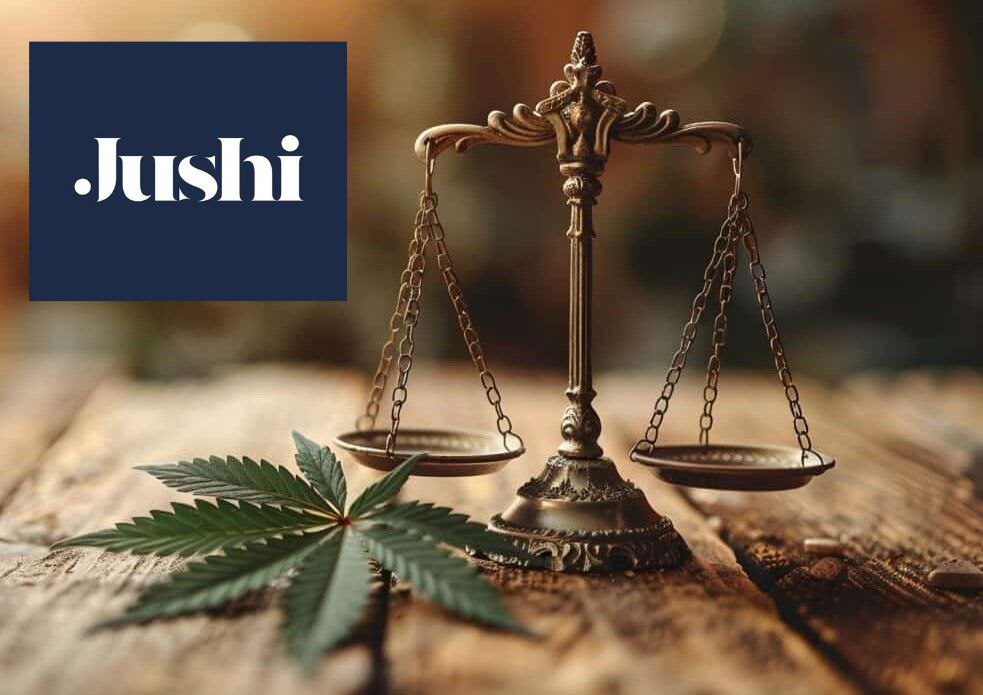Jushi Sues Pennsylvania Retailers Over Unregulated Hemp-Derived THC Products
PHILADELPHIA – Jushi Holdings Inc. has initiated legal action against 10 hemp companies in Pennsylvania, alleging they sell intoxicating products disguised as legal hemp that violate state laws and erode profits for licensed operators. The complaint, lodged on August 27, in Philadelphia County Court of Common Pleas, targets wholesalers and retailers accused of flooding the market with what plaintiffs call “illegal marijuana” under the cover of the 2018 Farm Bill.
The plaintiffs, Jushi’s subsidiaries (Agape Total Health Care Inc., Franklin Bioscience-Penn LLC, and Franklin Bioscience-SE LLC), operate 18 dispensaries across Pennsylvania under the Beyond Hello brand. They claim the defendants, including Golden Hour Farms LLC, SuperGreenSHEMPCO LLC, MC Botanicals LLC, MC Vivimus LLC, MC Nutraceuticals LLC, Revelry Supply Inc., DC Brands LLC, Wyatt Purp LLC, Black Market Shoppe Limited Liability Co., and South Street Market, distribute products with THC levels exceeding the federal 0.3% limit for hemp. These items, often sold at gas stations, convenience stores, and online, bypass the state’s strict medical Cannabis regulations, which require testing for contaminants and limit sales to certified patients.
Central to the suit is a July 2025 investigation by The Philadelphia Inquirer, which tested 10 hemp flower samples from the region and found 9 surpassed legal THC thresholds, with 7 resembling black-market Cannabis and most containing unsafe levels of mold, pesticides, or heavy metals. “The influx of these illegal products into unregulated retail channels directly undermines the Commonwealth’s regulated medical Cannabis program,” the complaint states, adding that such practices grant defendants “a substantial and unlawful economic advantage” while shifting costs to compliant businesses.
Jushi’s Chief Strategy Officer, Trent Woloveck, described the case as a push for public safety, noting that unlicensed “gas station weed” often harbors toxins like pesticides and mold. With Pennsylvania’s medical Cannabis market projected to reach $2.1 billion in 2025, Jushi argues that unchecked hemp sales threaten the industry’s integrity and its own financial stability, especially as the company reported a $12.3 million loss on $65 million in revenue in its latest quarterly filing. The defendants, based in states including California, Florida, Maryland, Texas, and Pennsylvania, have yet to respond in court records as of August 29.
This dispute exposes a rift in the industry: the 2018 Farm Bill legalized hemp nationwide, but it left room for states to impose restrictions, which Pennsylvania has yet to fully enforce against intoxicating derivatives. Licensed operators shoulder hefty compliance expenses (from lab testing to security) that hemp sellers evade, creating uneven ground in a market where recreational sales remain prohibited. Critics point out that without intervention, such loopholes could stall progress toward broader legalization, as lawmakers in Harrisburg continue debates on adult-use Cannabis.
The case marks one of the first direct challenges by a multi-state operator against hemp firms in this manner. If successful, it could force tighter oversight and reshape how intoxicating hemp is handled in medical-only states.




































